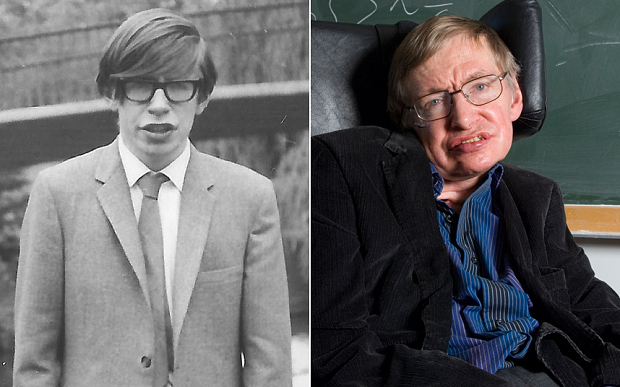The End of a Great Mind: Stephen Hawking
March 14, 2018
In the early hours of Wednesday, March 14, Stephen Hawking passed away in his home in Cambridge at the age of 76; his family has stated that it was peaceful.
Hawking suffered from ALS (amyotrophic lateral sclerosis), which is typically fatal. In 1963 when he was diagnosed, he was initially given no more than two years to live. Though he clearly outlived that prediction, he was completely paralyzed except for several fingers on one of his hands, and lived most of his life in a wheelchair, using a speech synthesizer to communicate.
Hawking was born January 8, 1942, the 300 year anniversary of the death of groundbreaking astronomer Galileo Galilei.
He graduated from Oxford in 1962 with a degree in natural science, and moved on to study cosmology (the study of the development of the universe) at Cambridge University. From 1979 to 2009, he worked as the Lucasian Professor of Mathematics at Cambridge, a position once held by none other than Sir Isaac Newton himself. In 1988, Hawking published his international best-seller, A Brief History of Time, a book discussing theories of the creation of the universe that was aimed at the general public. He was the first to develop an idea combining the theory of relativity and the quantum field theory (understanding the physics of all of space using the physics of atoms and subatomic particles). However, it has been proven that if one of the theories is correct, the other cannot be. This is where the string theory emerged, the idea that every particle is made up of strings that vibrate at different patterns. “We are just an advanced breed of monkeys on a minor planet of a very average star,” Hawking stated. “But we can understand the universe. That makes us something very special.”
Hawking was married to his first wife, Jane Wilde, for 30 years and had three children with her. He was married to his second wife, Elaine Mason, for 11 years.
In 2014, the film The Theory of Everything was released dedicated to Stephen Hawking’s life. Hawking stated in an email to one of the directors that there were certain points in the movie where he thought he was watching himself.
Neil deGrasse Tyson tweeted, “His passing has left an intellectual vacuum in his wake. But it’s not empty. Think of it as a kind of vacuum energy permeating the fabric of spacetime that defies measure. Stephen Hawking, RIP 1942-2018.”
Stephen Hawking has been described as the brightest person of his time, and his legacy will live on forever.












